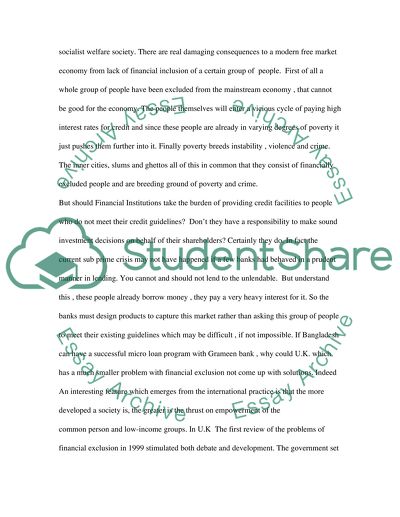Cite this document
(“Financial Exclusion Essay Example | Topics and Well Written Essays - 1500 words”, n.d.)
Retrieved from https://studentshare.org/law/1519204-financial-exclusion
Retrieved from https://studentshare.org/law/1519204-financial-exclusion
(Financial Exclusion Essay Example | Topics and Well Written Essays - 1500 Words)
https://studentshare.org/law/1519204-financial-exclusion.
https://studentshare.org/law/1519204-financial-exclusion.
“Financial Exclusion Essay Example | Topics and Well Written Essays - 1500 Words”, n.d. https://studentshare.org/law/1519204-financial-exclusion.


